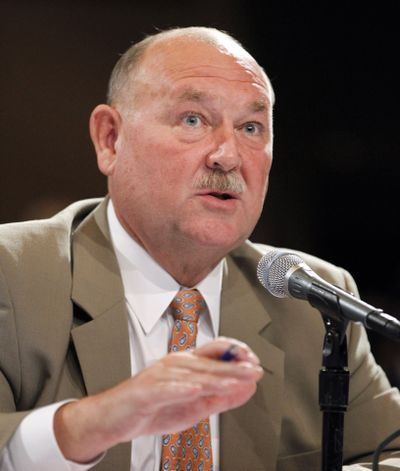Oil spill chief says perception is key in federal response
Allen calls for oversight without ‘fiduciary link’

WASHINGTON – Retired Coast Guard Adm. Thad Allen, commander of the federal response to the Gulf oil spill, called Monday for the creation of a third-party overseer to deal with containment and clean-up efforts in future oil spills instead of leaving the job to the government.
Allen’s recommendation, made in testimony before the National Commission on the BP Deepwater Horizon Oil Spill and Offshore Drilling appointed by President Barack Obama, did not reflect lack of confidence in the ability of the Coast Guard and other federal agencies to respond to such environmental challenges. Rather, it reflected his perception that the public had become deeply mistrustful of how the government and BP have handled the biggest offshore drilling disaster in U.S. history.
Allen said he did not think BP had shirked its responsibilities. Yet despite the massive scale of the containment and clean-up and BP’s pledges to make amends, Allen said he had encountered a broad reaction that the oil spill response system was broken.
“The reason, I believe, we may want to consider an independent qualified individual is largely due to the perception of the American people and our political leaders that this is not working,” Allen said. “And if the perception is that strong, we just (should) try to do something about it.”
The Clean Water Act allows the federal government to clean up a spill on its own or to have the responsible party, in this case BP, participate in the process, said Joshua Force an adjunct lecturer at Tulane University Law School and an attorney with Sher Garner Cahill Richter Klein & Hilbert, LLC.
Having the polluter play a key role in the response inherently raises questions about a conflict of interest, Force said, “Are they doing it the best way or the cheapest way?”
In his comments, Allen proposed the creation of an entity that “would represent the industry, oversee the response, have access to the resources, but basically would be firewalled from any fiduciary link back to the shareholders – almost putting the resources in trust and having them executed by an industry expert.”